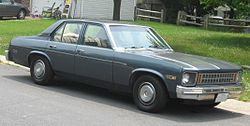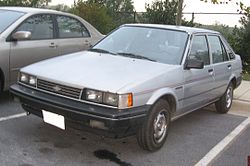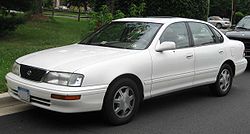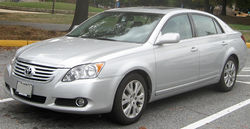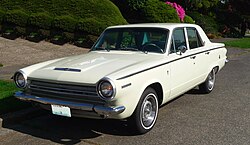Nevertheless, there are some comparisons we can make. For example:
95 Toyota Avalon
Vs.
08 Toyota Avalon
The 08 Toyota Avalon is longer.... wider... taller... has more room obviously... has a larger engine... get's less gas mileage... heavier...
And has a better rating than the smaller, lighter, shorter, better mileage car prior.
http://www.iihs.org/ratings/ratingsbyseries.aspx?id=284
In fact, as the car got larger and less mileage, the rating went up in consecutive model changes, from M (marginal) to start with, to A (Average) and finely G (good).
Similarly the Honda Accord has gotten much larger over the years, and has gotten lower gas mileage, while at the same time getting safer.
http://www.iihs.org/ratings/ratingsbyseries.aspx?id=276
This situation can be replayed many times with many models from many manufacturers.
So are older cars safer? Not inherently, no. However, there is something to be said about the strength of the material used. My 82 Buick has been hit twice, and both times left no damage to my car. Further, since I worked at a Cadillac dealership, I can tell you that there is a difference in how cars are made, that make them less strong.
For example, in order to comply with CAFE standards (something imports generally ignore), the metal was made so thin that newer model caddies has such thin roofs, that installing a sun roof, would warp the entire top of the car. As such, doing so required much more time, and cost tons more money.
Further, trucks and SUVs with lower CAFE requirements had thinker metal which allowed them to handle more abuse. A hail storm that went through years ago now, showed the difference between my fathers Tahoe, and my mothers PT Crusier. The PT was riddled with dents, while the Tahoe has no evidence at all that it had been pelted.
Routinely though, smaller cars do result in more deaths. Notice, not older cars. This doesn't make the point older is safer, but bigger is safer.
http://www.washingtontimes.com/news/2009/may/31/small-cars-kill/
It just so happens that older cars are typically bigger. Yes, newer cars have some newer safety features. However, a larger vehicle will offset those safety features greatly. If the playing field was level, and an older larger car was given the same basic safety features as a newer tiny car, you would undoubtedly end up vastly safer in the older car.


